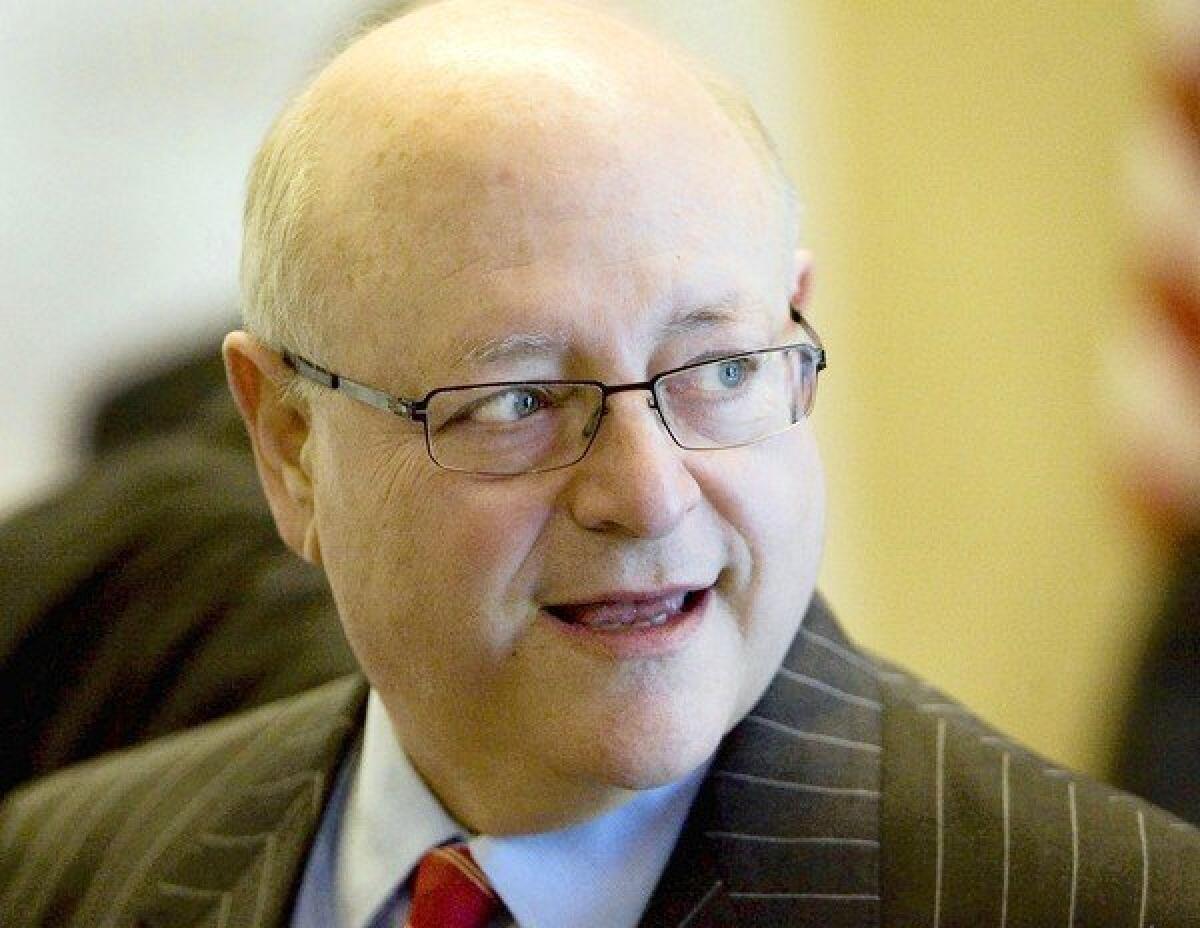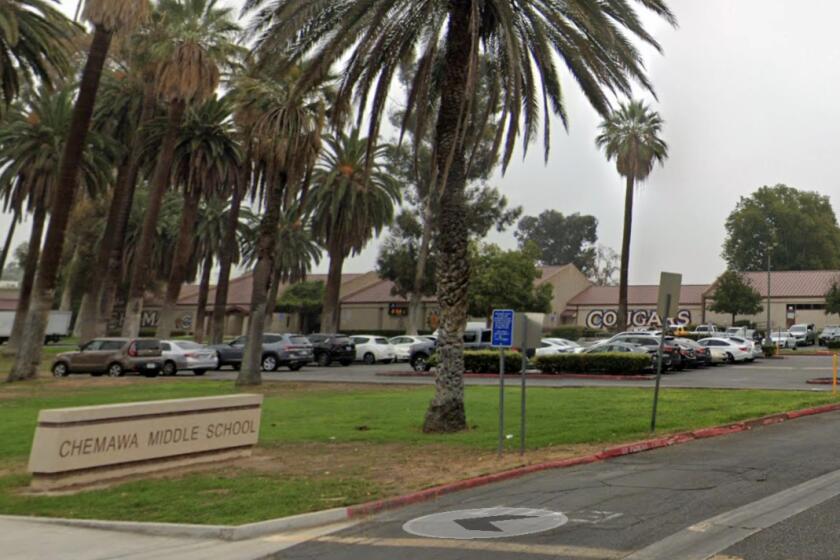UC chief Yudof quits, citing health reasons

SAN FRANCISCO — University of California President Mark G. Yudof announced Friday that he is resigning in August for health reasons, ending a five-year stint in which he guided the 10-campus system through one of its worst financial crises and controversies over rising tuition.
His announcement comes at a time of change throughout California’s higher education system.
Gov. Jerry Brown is aggressively pressing the university to cut costs and to reform its traditional methods of teaching and research. Brown attended UC regents meetings this week and spoke at length about how higher education must adapt to new technologies and expand online courses, which Yudof had said he planned to do.
The other two segments of California public higher education recently had turnover at the top. California Community Colleges Chancellor Jack Scott left in October and Cal State University system head Charles B. Reed departed last month. In addition, UC Berkeley Chancellor Robert J. Birgeneau, one of the most important figures in UC, is retiring in the spring.
UC regents insisted that Yudof’s resignation was not a result of Brown’s new activism. They said the timing stems from the 68-year-old Yudof’s health and his belief that the financial prospects for the 234,000-student university are improving with the Proposition 30 tax increases that voters approved in November.
After years of reduced or frozen education budgets during the recession, Brown is proposing to increase state funding for UC by 5%, or $125 million, next year.
Yudof said in a prepared statement that his recent health problems, which included gallbladder surgery, bronchitis and a broken shoulder “have been largely overcome,” but that he still felt “it is time to make a change in my professional lifestyle.”
Referring to Proposition 30 taxes, Yudof said: “Now it appears the storm has been weathered. We are not fully in the clear. But we are much closer than we were even a few months ago.”
Yudof would not consent to an interview Friday, his staff said.
Yudof oversaw the university at a time of huge hikes in tuition, which rose from $7,517 a year for California resident undergraduates in 2007 to $12,192 now, not including room and board. The increases triggered frequent protests from students and many sarcastic references to Yudof’s $591,000 salary and hefty pension.
Reduced course offerings and cuts in non-tenured teaching staff made it harder for undergrads to graduate on time. And some critics said the increasing ranks of out-of-state students, recruited for the extra fees they pay, hurt the chances of California applicants and made UC feel more like a private institution. Labor unions were outraged by Yudof’s one-year plan to cut salaries in 2009 by between 4% and 9%.
Yudof won praise for protecting the main academic mission of the sprawling university, avoiding enrollment cutbacks and boosting financial aid to low- and middle-income families.
Sherry Lansing, chairwoman of the regents, said she and others had beseeched Yudof not to leave, but, given his health issues, he felt that “at some point you have to put quality of life first.” She said the regents and Brown wanted Yudof to stay and work for years more on such issues as the announced expansion of online courses and expanding aid to middle-income families.
Lansing described Yudof as “a phenomenal leader who maintained quality and access to the university through these extraordinarily difficult times.”
Molly Broad, president of the American Council on Education, said UC was fortunate to be under the guidance of Yudof, who skillfully navigated an era of staggering budget cuts while maintaining the high-quality reputation of UC.
“Mark doesn’t ever shrink from the hard conversations — or the tough decisions — no matter how controversial they may be,” she said.
The regents will form a national search committee to find a replacement for Yudof. If a suitable candidate is not hired by summer, Lansing said she would ask Yudof to stay until one is found.
One of the biggest crises during Yudof’s term came when a UC Davis police officer pepper-sprayed peaceful student demonstrators at that campus in November 2011. The videotaped incident triggered national outrage. Yudof said he was appalled by the police action and ordered investigations, which criticized police and campus administrators and called for reforms across the UC system.
Yudof reduced administrative spending overall but drew strong criticism for insisting that UC try to match executive salaries with private competitors. “Unfortunately, under President Yudof’s leadership, students and workers unfairly suffered while top executives got wealthier,” state Sen. Leland Yee (D-San Francisco) said Friday.
Although students who met Yudof face to face often came away charmed by his gregarious manner, wry humor and concern for their well-being, he was unpopular among the vast majority of students because of the tuition increases, student leaders say.
Jonathan Stein, the student regent, said he did not agree with many of Yudof’s policies but “never doubted his total commitment to UC, its research excellence, and its students.” Yudof paid particular attention to ethnic diversity and helped undocumented students by advocating for the legislation that granted them access to financial aid, Stein added.
No UC president had to deal with a tougher set of issues, and he did a great deal to maintain stability at UC, said Patrick Callan, president of the nonprofit Higher Education Policy Institute in San Jose. But his response in raising student fees showed a lack of imagination, Callan said, giving him “pretty good marks for stability, not very high marks for innovative leadership.”
Before coming to UC, Yudof served as chancellor of the University of Texas system for six years and as president of the four-campus University of Minnesota for five. He is a constitutional scholar and former law dean at the University of Texas’ Austin campus.
Times staff writer Stephen Ceasar in Los Angeles contributed to this report.
More to Read
Sign up for Essential California
The most important California stories and recommendations in your inbox every morning.
You may occasionally receive promotional content from the Los Angeles Times.











